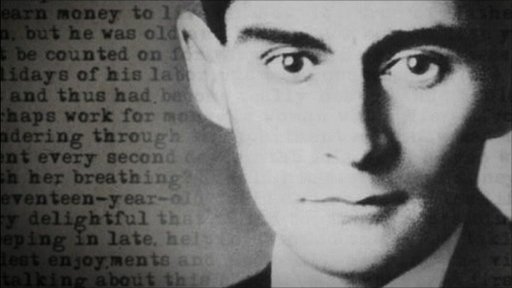As I learned form my father, for fourteen years, that is to say for nearly half the average length of a generation, Franz Kafka sat behind his smoothly polished desk in the smoke-fumed air of the factory at No. 7 on the Poric. He entered the Institution on 30 July 1908, as an assistant and at his own request retired as a principal secretary on 1 July 1922. Frau Svatek, who cleaned Kafka’s office, and also our own house in Karolinenthal, told me: ‘Kafka came and went as silently as a mouse. He disappeared in the same way as he lived at the Insurance Institution throughout the years. I don’t know who cleared out his desk. In his hanging cupboard there was only Kafka’s threadbare grey second-best coat which he kept there for a rainy day. I’ve never seen him with an umbrella. A cleaner took his coat. Whether he took it to Kafka or kept it—I don’t know. I scrubbed the empty cupboard with soap and water. On his desk stood an old, slender glass vase, containing two pencils and a penholder. Next to it was a lovely blue-and-gold teacup and saucer to match. Treml (a co-worker) who watched me while I cleaned up, said: “Take that rubbish away!” The vase was part of Kafka’s working equipment. He often drank milk and sometimes tea out of the cup. So I took what Treml called the rubbish and brought it home. Take them young man. You were very fond of Kafka.’
And so indeed I did. The little porcelain cup accompanied me in the most varied circumstances and dwellings. But I never used it. I was ashamed to put my lips to the rim which Kafka had raised to his mouth.
(From: Conversations with Kafka by Gustav Janouch)


